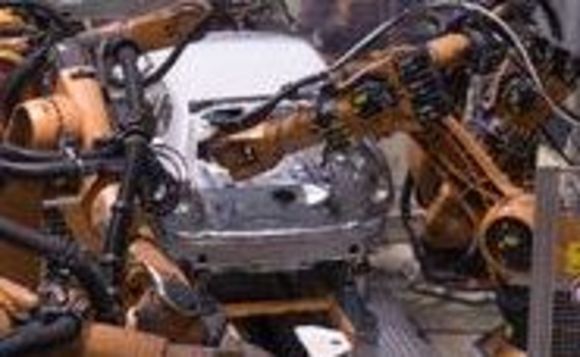
German industry: Getting the European economy working

Manufacturing is one of the most important sectors in the German economy, and the country's heavy industry base seems to be experiencing a revival as the global economy improves. As Europe's biggest manufacturer, the health of German industry is also vital to continued growth across the continent. John Bakie investigates
CGS Management-backed Automatik Plastic Machinery has recently merged with Maag Pump Systems, in a deal worth CHF 200m. The merger marks the fifth private equity-backed deal involving German industrial machinery companies since the beginning of the year. There is considerable interest in this subsector, which provides machinery and machinery support services for factories, both in Europe and the developing world.
However, two of these companies have recently had to be saved from near bankruptcy. In April, Perusa GmbH acquired insolvent Kammann Maschinenbau, which provides machinery to print on plastic and glass. The company went into insolvency in October 2009, owing to heavy debt and vastly reduced turnover. Similarly, CBR Management took ALVO Metalltechnik GmbH out of insolvency in February this year. ALVO, which produces sheet metal covers for machinery, was declared insolvent in March 2009.
With the European economy facing a severe downturn from late 2008, and a strong euro hitting the manufacturing sector in particular, it is easy to see why these companies began to falter. However, this also provided the opportunity for private equity firms to obtain assets cheaply, and take full advantage of growing confidence and a weaker currency.
Though the debt crisis in Greece is causing problems across Europe, its effect on the euro currency, which has remained remarkably strong against both the dollar and sterling, could be good news for hard-pressed manufacturing companies. Even those who have survived, will be relieved their goods can now be sold more affordably in foreign markets. The dollar is currently trading at around $1.20 to €1, compared to almost $1.40 just a few months ago. Industrial companies, particularly those providing machinery services to developing countries where currencies are pegged to the dollar, will likely welcome the weakening of the euro.
Prospects for German manufacturers and the businesses that support them seem to be improving, and while the market gains its feet once again, private equity investors are well placed to feed these companies with capital to fund their future development.
Latest News
Stonehage Fleming raises USD 130m for largest fund to date, eyes 2024 programme
Sponsor acquired the public software group in July 2017 via the same-year vintage Partners Group Global Value 2017
Stonehage Fleming raises USD 130m for largest fund to date, eyes 2024 programme
Czech Republic-headquartered family office is targeting DACH and CEE region deals
Stonehage Fleming raises USD 130m for largest fund to date, eyes 2024 programme
Ex-Rocket Internet leader Bettina Curtze joins Swiss VC firm as partner and CFO
Stonehage Fleming raises USD 130m for largest fund to date, eyes 2024 programme
Estonia-registered VC could bolster LP base with fresh capital from funds-of-funds or pension funds








